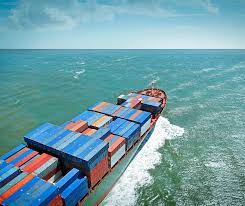Cargo shipping is an essential component of modern global trade, but it is not without its challenges. Shipping cargo by sea can be difficult, expensive, and time-consuming. From ensuring the safety of your cargo to complying with customs regulations, there are many obstacles that need to be addressed when shipping goods by maritime means. Even something seemingly simple as finding the right cargo ship can become a complex process.
In this article, we will discuss innovative strategies for keeping your cargo ship operating efficiently, cost reduction tactics, and how technology is changing the way we manage our cargo ships. We will examine the potential obstacles that may arise from these changes and provide advice on how to overcome them. Finally, we will explore best practices for successful cargo shipping operations.
Innovative Strategies for Keeping Your Cargo Ship Operating Efficiently
One of the most important aspects of successful cargo shipping operations is minimizing costs and maximizing efficiency. This can include optimizing the use of technology, taking advantage of automation, and improving communication between vessels and crew. Technology such as automated vessel monitoring systems (VMS) can be used to track a ship’s location and monitor weather conditions. This can help reduce fuel costs by allowing vessels to avoid hazardous areas. Automation can also be used to streamline loading and unloading processes, reducing operational delays and port fees.
Cost Reduction Tactics for Cargo Shipping Operations
Cargo ships have numerous expenses associated with them, from fuel costs to port charges. To reduce costs, shipping companies should consider using alternative fuel sources such as LNG (Liquefied Natural Gas). This can reduce emissions and air pollution caused by diesel-powered vessels, while also reducing operational expenses. Additionally, cargo ships can use sling wire rope to secure loads rather than heavy chains, which are more costly and require more manpower.
Finally, cargo ships should take advantage of new opportunities created by digitalization and data analytics. By utilizing the vast amounts of data collected from fuel consumption, port fees, personnel costs, etc., companies can gain insight into ways to enhance efficiency and reduce costs.
Potential Obstacles to Overcome
Despite the potential benefits of technological advances, there are also some potential obstacles that must be overcome. For instance, security threats such as cyber-attacks or data breaches can be a major concern for cargo ships.
Another challenge is ensuring compliance with international regulations. As the shipping industry becomes increasingly globalized, it is important to be aware of and comply with, all relevant laws and regulations in order to avoid penalties or delays.
Finally, the cost and complexity of implementing new technologies can be a major obstacle. To overcome this, companies should consider using cloud-based solutions which are often more cost-effective and easier to implement.
Best Practices for Successful Cargo Shipping Operations
Despite the challenges, cargo shipping remains a critical component of global trade. To ensure successful operations, it is important to have an integrated approach that incorporates efficient processes, safety protocols, and cost-reduction tactics.
Also, it is essential to use the latest technology. This can include automated vessel monitoring systems, cloud-based solutions, and other tools that enable real-time communications. By leveraging data analytics, companies can gain valuable insights into their operations and make informed decisions about how to better manage their cargo ships.
Finally, cargo shipping operations should ensure they are compliant with all international regulations and have measures in place to prevent security threats. This may include investing in cybersecurity protocols, encrypting data, and regularly training personnel on safety procedures.
Overall, cargo shipping is a complex endeavor that requires careful planning and management. By understanding the potential challenges and implementing innovative strategies for cost reduction, efficient operations, and compliance with regulations, companies can ensure successful cargo shipping operations.
Now that you have a better understanding of the challenges associated with cargo shipping and what everyone needs to know in order to navigate them, you can begin finding ways to take advantage of new technologies and strategies for successful operations. With this knowledge, you are well on your way to becoming an industry leader in cargo shipping.




